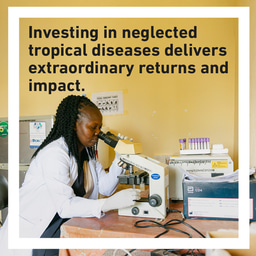 Israeli biotech could soon be playing a much greater role in finding health solutions for the world’s poorest peoples.
Israeli biotech could soon be playing a much greater role in finding health solutions for the world’s poorest peoples.
A new government-funded initiative, modeled after the Canadian Grand Challenges (CGC) and called Grand Challenges Israel (more information here), was launched January 19. Dr. Peter Singer, who heads the $235 million Canadian program and who has been advising the Israeli government on its nascent plans, noted in a recent talk in Israel that some Israeli technologies were already being widely used in the developing world, but said that “the potential for applying them to healthcare was not yet tapped in a systematic way.”
The goal of the CGC program, which is similar to the Grand Challenges in Global Health initiated by the Gates Foundation, is to spur scientists and companies to come up with innovative ideas that can improve healthcare in the developing world. Twice a year, the Canadian government-funded program selects, on a competitive basis, about 100 proposals and provides them with $100,000 in proof-of-concept grants. Other CGC programs provide larger matching grants for more mature technologies.
Some recent grantees include a rapid, highly sensitive single diagnostic assay for active, latent and drug-resistant Tuberculosis, developed at GIOSTAR Research in India; biomarkers for diagnosis of infectious diseases in children suffering from malnutrition from the Kenya Medical Research Institute; a simple yeast-based blood screening assay from the University of Toronto; and the analysis of anti-diabetic compounds in opuntia plant species and camel milk in arid and semi-arid lands of Kenya at the Kenya Agricultural Research Institute.
The Canadian program spends about $55 million a year to support the innovative programs. Applicants must be either Canadians or residents of developing countries. Grand Challenges Israel, however, will be giving grants of up to 500,000 shekels for proof of concept, with a first deadline of March 31, 2014.
“Some of the Grand Challenge projects have moved quite quickly from lab to the field,” noted Dr. Singer, citing as an example a high-throughput approach to discover a new dengue vaccine that is already undergoing small field trials in Vietnam and is close to public health use.
Dr. Singer’s talk took place under the auspices of the Pears Innovation for International Development Program at Tel Aviv University and IsraelDev. Dr. Aliza Belman Inbal, who heads the TAU program, noted that there is a “huge potential for applying Israeli know-how to the needs of the developing world.”




Please sign in or register for FREE
If you are a registered user on Research Communities by Springer Nature, please sign in